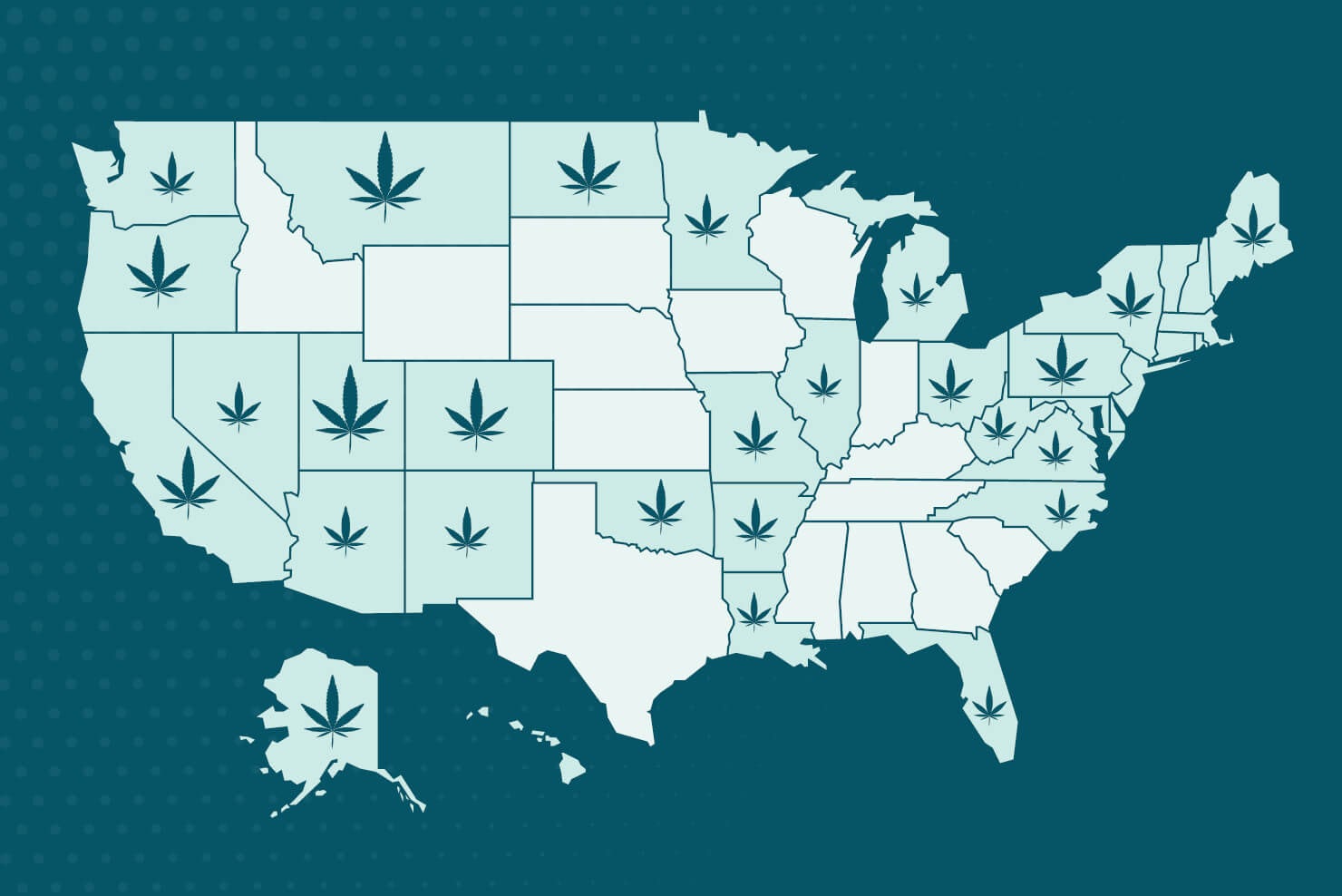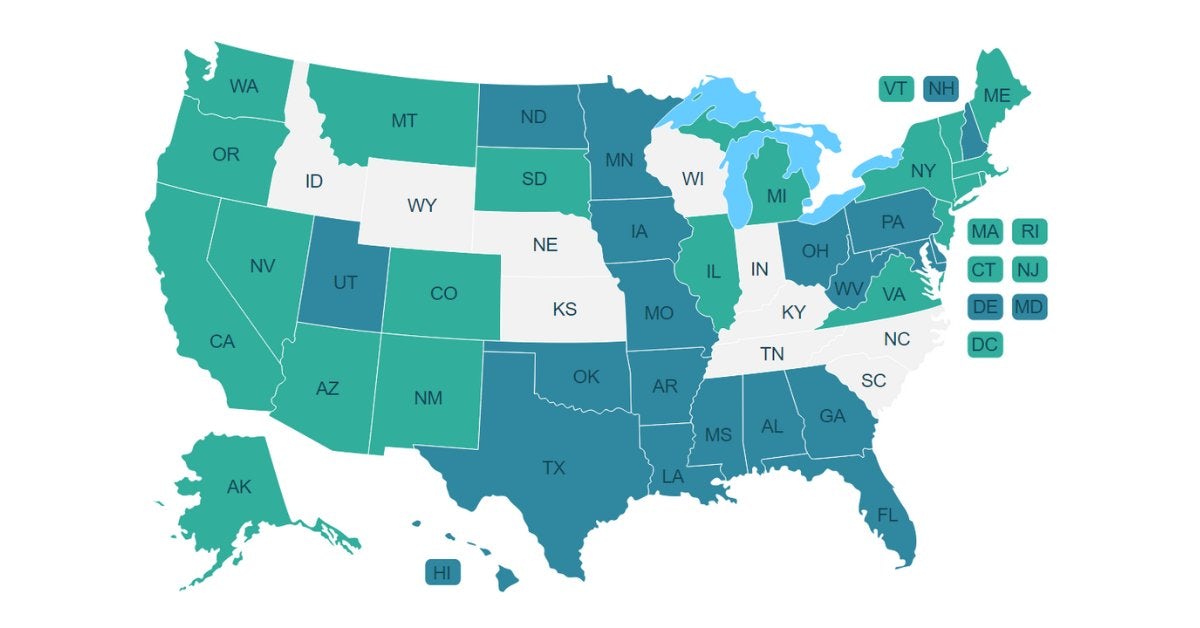Medical: Yes
Recreational: Illegal
Reciprocity: No
Medical marijuana has been legal in Arizona since 2010, and a patient or caregiver can possess up to 2.5 ounces of marijuana and if they have a cultivation permit, can grow up to 12 plants in an enclosed facility.
In November 2020, the state voted to legalized cannabis for adult use, which will take effect as soon as the election results are certified.
How to Get a Medical Card in Arizona
To receive medical marijuana in Arizona, an applicant must register online with the Arizona Department of Health Services Medical Marijuana Licensing System.
The patient or caregiver must submit all the requirements of the checklist, including their personal details, physician’s license number, state, and type, as well as the patient’s qualifying health conditions. They must also designate whether or not they want authorization to grow cannabis for personal use.
After finishing all of the requirements of the online application, the prospective patient or caregiver is required to pay a fee of $150.
The application will not be complete without a physician certification form attesting to the patient’s condition.
Legalization in Arizona
Cannabis will become legal for adult use and possession in Arizona in the near future, following a ballot measure in November 2020.
Arizona voters on Election Day issued a resounding victory for cannabis legalization, with 59.77% voting in favor of Proposition 207, which will legalize marijuana use for people over the age of 21, and subject cannabis sales to regulation, taxation, and local ordinances.
Once the results of the election are certified (it should take around a month), it will be legal to possess up to an ounce of marijuana in Arizona, but licenses and regulations for legal cannabis stores are only expected to be issued by March or April 2021 at the earliest.
Also known as “the Smart and Safe Act,” Prop 207 allows adults 21 and older to purchase up to one ounce of cannabis and grow six plants at their residence. Cannabis sales under the proposition will be subject to state and local sales taxes, as well as a 16% excise tax. The measure also allows courts “to vacate and expunge certain marijuana arrests, charges, adjudications, convictions, or sentences.”
Qualifying Conditions
In Arizona, an applicant may receive medical marijuana if they (or the person they are providing caregiver services for) has one or more of the following conditions:
- Acquired immune deficiency syndrome (AIDS)
- Amyotrophic lateral sclerosis (ALS)
- Crohn’s disease
- Human immunodeficiency virus (HIV)
- Agitation of Alzheimer’s disease
- Cancer
- Glaucoma
- Hepatitis C
- Post-Traumatic Stress Disorder (PTSD)
- If a disease or medical condition causes:
- Cachexia or wasting syndrome
- Severe and chronic pain
- Severe nausea
- Seizures, including epilepsy characteristic
- Severe or persistent muscle including those characteristic of multiple sclerosis
Reciprocity
Arizona does recognize other states’ licenses, but does not allow non-Arizona residents to purchase marijuana at the state’s dispensaries.
Where to Buy
There are currently more than 100 licensed dispensaries operating in the state, and they are allowed to sell dried flower, concentrate, shatters, vapes, topicals, and edibles.
Taxes and Medical Marijuana in Arizona
Medical marijuana businesses pay state and local taxes in Arizona and all medical marijuana sales are subject to the state’s 5.6% sales tax and city and county taxes that range from 0.25-4%.
Sign up for bi-weekly updates, packed full of cannabis education, recipes, and tips. Your inbox will love it.

 Shop
Shop Support
Support













